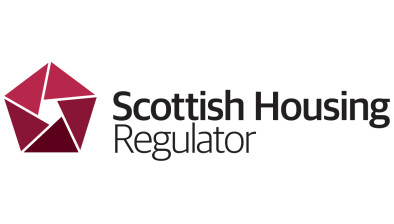Housing bodies to develop Self-Assurance Toolkit
The Scottish Federation of Housing Associations (SFHA), Glasgow and West of Scotland Forum of Housing Associations (GWSF), the Association of Local Authority Chief Housing Officers (ALACHO), and the Scottish Housing Regulator (SHR) are to work together on the development of a Self-Assurance Toolkit.
The aim of the toolkit, which is being led by SFHA, is to help social landlords to comply with the SHR’s new Regulatory Framework, which introduces changes in social housing regulation.

Partnership working will ensure that the toolkit is influenced and informed by the social housing sector. A project group will be established and led by the SFHA and include GWSF, ALACHO and SHR. Other partners and social housing providers will also be part of the toolkit development process.
Sally Thomas, SFHA chief executive, said: “During the consultation process on the new Regulatory Framework, there was considerable support for a toolkit to provide additional advisory guidance to help social landlords comply with the new requirements, particularly regarding assurance statements.
“It is vitally important that social landlords can comply with regulatory standards, so they can continue to provide good quality housing and services, and we are pleased to be working with the SHR, GWSF and ALACHO to ensure landlords can do this.”
Michael Cameron, chief executive of the Scottish Housing Regulator, said: “It’s an important time for landlords as they work to effectively embed the new requirements over the first year of the new Framework. The new, sector-led toolkit is a way to support landlords to do this.
“We’re looking forward to working together with the SFHA, GWSF, ALACHO, other partners and social housing providers across the sector to develop a toolkit that helps board and committee members to ask the right questions and get the assurance they need.”
David Bookbinder, GWSF director, said: “The toolkit is intended to be of real practical help to our members. Guidance on, for example, meeting equalities requirements in a way which both promotes best practice and is also realistic and proportionate is likely to be warmly welcomed by the sector.”
Tony Cain, ALACHO policy manager, added: “The new Regulatory Framework provides the structure for the work of the housing regulator, and the toolkit will give landlords the direction and options they need to improve services to tenants and those facing homelessness, in a way that focuses on local priorities, backed by national standards.
“We’re looking forward to working with the regulator and colleagues in the housing association movement to ensure that social landlords continue to improve.”
Further details will follow regarding the involvement process, content, timescales and milestones, design and other aspects of the toolkit.
The first priority for the project will be to identify the questions that governing bodies and committees should ask themselves in order to be able to sign off the assurance statement. The SFHA’s existing Self-Assessment Against Regulatory Standards guidance will be used to develop aspects of the content, along with other relevant guidance.







